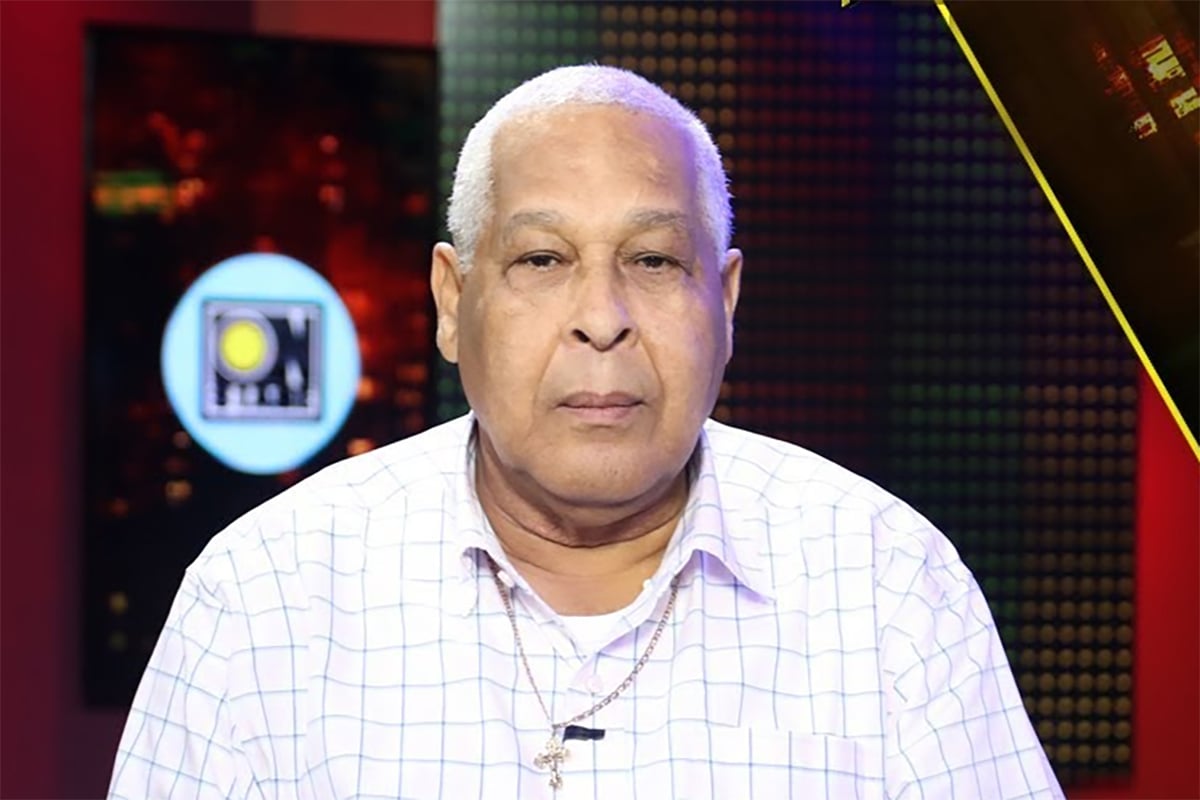King Jammy Calls On “Original” Dancehall, Reggae Producers To Guide Young Artists

Veteran music producer Lloyd “King Jammy” James has called on Jamaica’s more seasoned Reggae/Dancehall music producers to mentor and sharpen the skills of upcoming artists once they realize they have great potential.
James was responding to questions posed by Television Jamaica’s Anthony Miller, as to whether the interactions between producers and artists were still critical in this era, during an interview regarding singjay Intrestt, an artist the producer has recently taken under his musical wing.
“It makes a difference every time, Anthony, because Reggae music is a serious thing. You have to be there for the artiste and to guide the artiste with your experience that you have,” the Sleng Teng producer said.
“Some of the original producers who are still in the business, who are still alive, you know, they must offer their service to these youngsters and guide them along the way,” he added, alluding to Interestt, who himself admitted in the interview that his musical content, prior to King Jammy’s intervention, was rather bellicose.
King Jammy’s sentiments are almost similar to that of acclaimed Downsound Dancehall/Reggae music producer Cordell ‘Skatta’ Burrell, who in February 2021, affirmed that music producers are the ones who have the responsibility to provide guidance to the artists as to the lyrical content of the songs they are putting “out into the atmosphere”.
At the time Skatta had said that present-day Dancehall artists who are voicing gun songs with impunity, for example, ought not to be blamed for their content.
Instead, Skata said, the condemnation ought to be placed squarely at the feet of irresponsible and reckless music producers, who, in many cases, have failed the artists by keeping them one-dimensional, resulting in them coming under intense scrutiny and public rebuke for their lyrics.
Skatta had contended that many have unwittingly had their careers stifled, even though they have the capacity to pen and record songs that have mainstream potential.
Similar to King Jammy, the Calabar High School old boy had recruited upcoming artist Fully Bad, who is known for violence-laced songs, to voice on the first riddim he created when he resumed music production in late 2020.
Skatta had shared that after he sat the artist down and explained the caliber of songs he wanted on the riddim, the Cassava Piece native pleasantly surprised him a week later, with the song We Nah Smile Again whose lyrics were so conscious, that he immediately recognized it as a potential Dancehall anthem.
King Jammy, who is regarded as the undisputed king of computerized, digital reggae music, also explained during the interview that he wanted Intrestt to move away from negative songs.
“Because he is a young guy, I wanted him to express himself in a manner that I will accept. And he is doing so good now that I don’t have to come here every day,” Jammy said.
“Well for sure he will be guided in the right direction good business and recording, because that is what we do,” he said of the Gregory Park native.
King Jammy has the distinction of masterminding juggling riddims back in 1981, when he collaborated with Wayne Smith, and his friend Noel Davy to transfigure the preset rhythm pattern programmed into the Casiotone MT-40 keyboard, released in 1981, and use it as the backbone for Smith’s revolutionary song Under Mi Sleng Teng.
The Sleng Teng riddim, which Jammy co-produced, has the distinction of being a pioneering riddim for Dancehall’s digital age, being among the first entirely digitally produced riddims, for which no musicians were used to play instruments live in the studio.
Sleng Teng is also one of the most re-recorded Jamaican riddims of all time, with more than 350 songs being laid on it.
After Smith’s Sleng Teng blew up the first night it was played, King Jammy then decided to embark on a recording spree before other producers could make knock-off versions of the riddim.
Out of that frenzy came songs such as Call the Police by John Wayne, Trash and Ready by Super Cat, and Tenor Saw’s Pumpkin Belly, on the Sleng Teng beat, which set the pattern for juggling riddims (ie. A series of songs on a single rhythm).
King Jammy was involved in the sound system business from a very early age. He started out building amplifiers and repairing electrical equipment from his mother’s house in Waterhouse, and made his sound system afterwards.
After migrating to Canada in the 1970s, he returned to Kingston and set up his first studio, in Waterhouse, while working with acclaimed producer King Tubby’s team. He began releasing his own productions in the late 1970s, among them the debut Black Uhuru album, and produced for numerous rising dancehall artists such as Half Pint, Junior Reid, Echo Minott, and later Bounty Killer.
